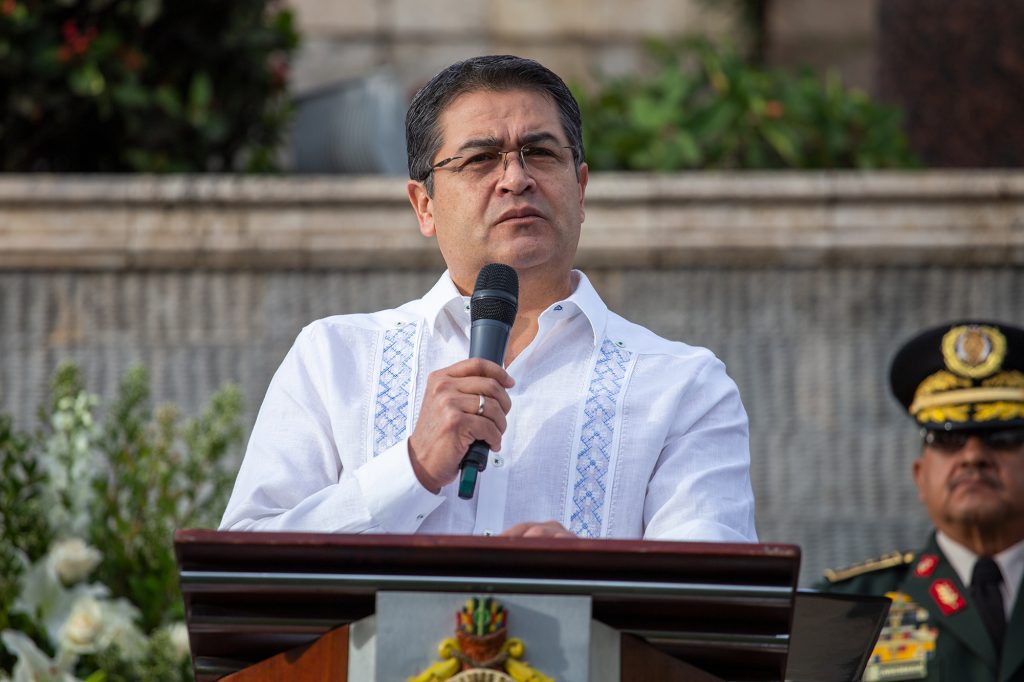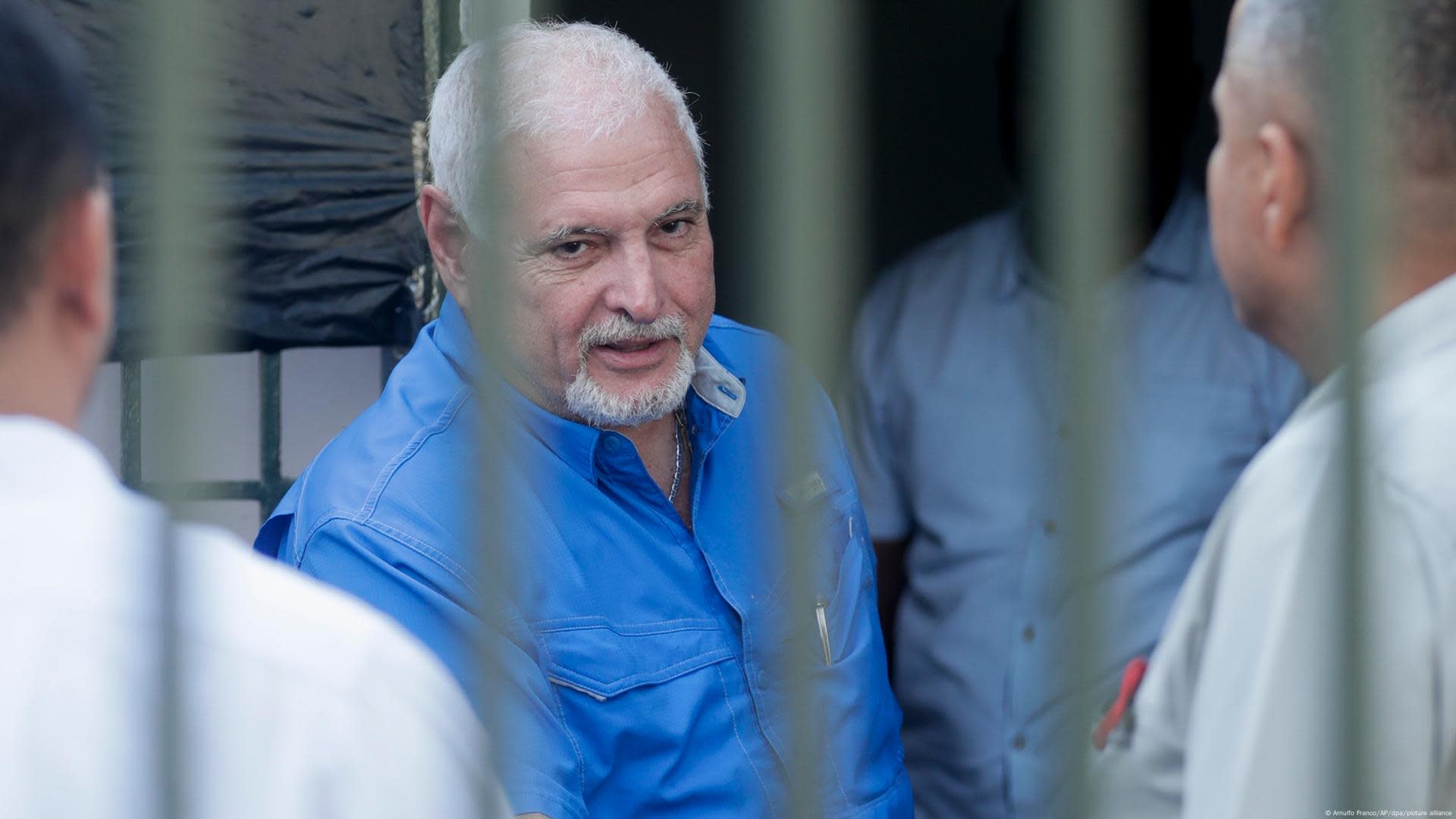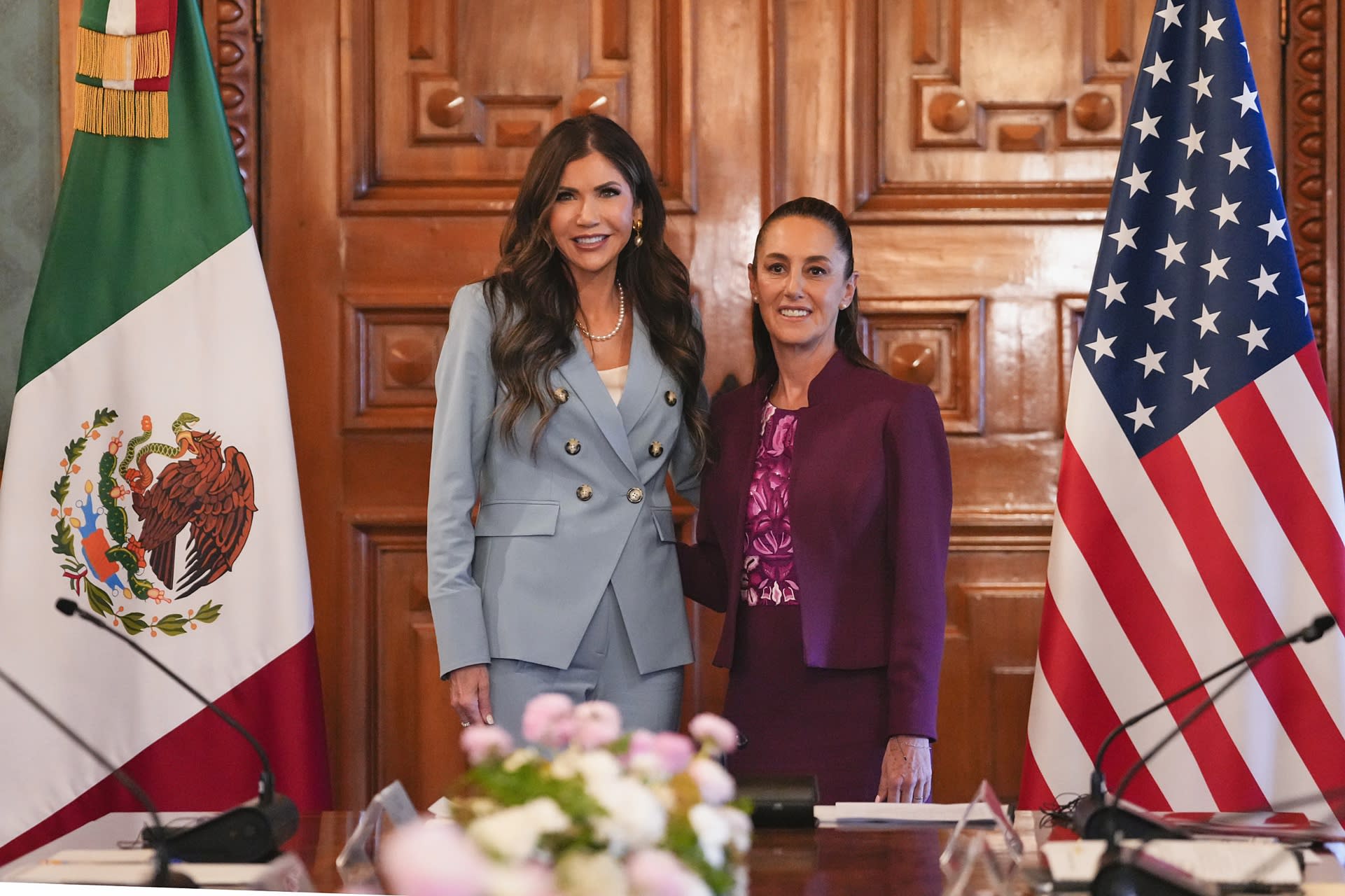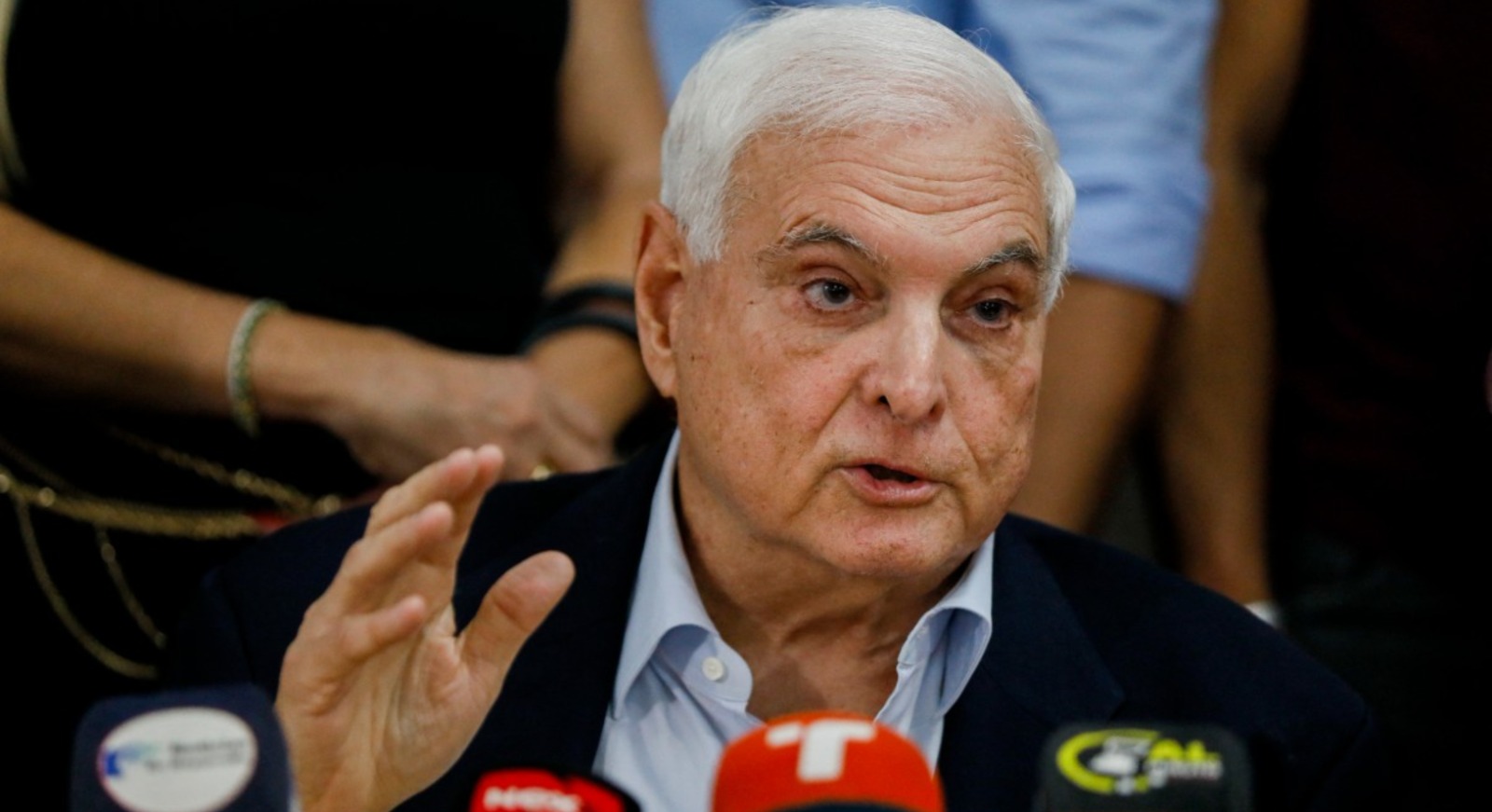Central America
Ex-Honduran president appears in US court on drugs charges

AFP
Ex-Honduran president Juan Orlando Hernandez made his first appearance before a US judge Friday following his extradition to America to face drug trafficking charges.
The 53-year-old appeared in a New York federal court via video-link after he was brought to the United States on Thursday.
Hernandez is accused of aiding the smuggling of hundreds of tons of cocaine to America in return for millions of dollars in bribes from drug-traffickers.
Hernandez was not required to enter a plea during the short hearing. His lawyers did not make a request for bail but said they would at a later date.
Judge Stewart Aaron set a date of May 10 for Hernandez’s arraignment, when the former leader will be expected to say whether he will challenge the charges.
Hernandez, whose 2014 to 2022 stint as president was plagued by allegations of corruption, risks spending the rest of his life in prison if convicted.
He is accused of having facilitated the smuggling of some 500 tons of cocaine — mainly from Colombia and Venezuela — to America via Honduras since 2004, starting long before his presidency.
In turn, he received “millions of dollars in bribes… from multiple narcotrafficking organizations in Honduras, Mexico and other places,” US prosecutors allege.
Hernandez has been charged with three counts of drug and weapons offenses.
Not even three weeks after leaving office following elections, a warrant was issued for his arrest at Washington’s request, and he surrendered to police on February 15.
He was then held at a police special forces prison in the capital Tegucigalpa before he was taken to the US on a Drug Enforcement Administration plane.
Hernandez portrayed himself as an ally of the US war on drugs during his tenure, helping to extradite several narcotics kingpins.
Washington even supported his re-election in 2017 despite a constitutional one-term limit and accusations of voting fraud.
But several drug traffickers since told US prosecutors they had paid bribes to the president’s inner circle, and by the time he left office, US drug enforcers were ready to move against Hernandez.
Central America
Panama grants Martinelli 72-hour extension to travel to Nicaragua

On Monday (March 31, 2025), Panama extended the safe-conduct pass for former President Ricardo Martinelli by three more days to allow him to travel to Nicaragua, after the Central American country refused to receive him due to concerns over an alleged Interpol arrest warrant.
“The National Government has decided to extend the validity of the safe-conduct pass for an additional seventy-two (72) hours, until the end of Thursday, April 3, 2025,” the Panamanian Foreign Ministry stated in a communiqué. The original permit was set to expire Monday at midnight (05:00 GMT on Tuesday).
The Foreign Ministry explained that regarding the ‘humanitarian asylum’ granted to Martinelli last Thursday, which was set to expire Monday at midnight, the Nicaraguan government requested clarifications about an apparent Interpol alert, which had already been dismissed as inadmissible.
Additionally, the Panamanian Supreme Court of Justice, as the highest authority of the Judicial Branch, stated on Monday that it had “no objections” to granting asylum and a safe-conduct to Martinelli, as it falls under the jurisdiction of the Executive Branch.
Central America
U.S. Homeland Security Secretary urges Mexico to strengthen Guatemala border

U.S. Homeland Security Secretary Kristi Noem revealed on Monday that during last week’s meeting with Mexican President Claudia Sheinbaum, she urged Mexico to reinforce its border with Guatemala and share biometric datawith U.S. authorities.
“I gave her a list of things that President Trump would love to see. And it was exceptional. It was supposed to be a half-hour meeting, but we talked for nearly two hours. It was very productive,” Noem said in an interview with Fox News.
The Homeland Security Secretary requested that Sheinbaum, who has already deployed 10,000 National Guard troopsalong Mexico’s northern border with the U.S., also secure Mexico’s southern border with Guatemala.
Noem added that she also asked the Mexican president to share biometric data with the U.S., to which Sheinbaum responded that she was “willing to discuss it,” although she acknowledged that it could be a controversial issue in her country.
Central America
Panama police clarifies that Interpol alert for Martinelli is still pending

Panama’s National Police clarified on Sunday that an Interpol alert request for former President Ricardo Martinelli (2009-2014) is still under review and has yet to be confirmed. Martinelli was granted a safe-conduct pass last Thursday to leave the Nicaraguan embassy, where he has been seeking asylum since February 2024 after being convicted of corruption.
“The National Police clarifies that there is currently an active process for an Interpol alert, requested by Judge Baloisa Marquínez, against former President Ricardo Martinelli. This request must be analyzed by Interpol’s General Secretariat (headquartered in France) for approval or rejection. If approved, it will be notified to member countries,” the police stated in a press release sent to EFE.
According to the statement, “at the moment, it remains an ongoing procedure, and former President Martinelli does not have a confirmed alert.”
The announcement came hours after National Police Director Jaime Fernández had told the press that an “Interpol alert” for Martinelli had been received on Friday.
-

 International4 days ago
International4 days agoSon of journalist José Rubén Zamora condemns father’s return to prison as “illegal”
-

 International4 days ago
International4 days agoMiyazaki’s style goes viral with AI but at what cost?
-

 Central America2 days ago
Central America2 days agoU.S. Homeland Security Secretary urges Mexico to strengthen Guatemala border
-

 International2 days ago
International2 days agoTrump urges Putin to reach peace deal
-

 Central America3 days ago
Central America3 days agoPanama police clarifies that Interpol alert for Martinelli is still pending
-

 International3 days ago
International3 days agoDeportation flight lands in Venezuela; government denies criminal gang links
-

 Central America2 days ago
Central America2 days agoPanama grants Martinelli 72-hour extension to travel to Nicaragua
-
Central America4 days ago
Nicaragua revokes legal status of 10 more NGOs, bringing total to over 5,600















